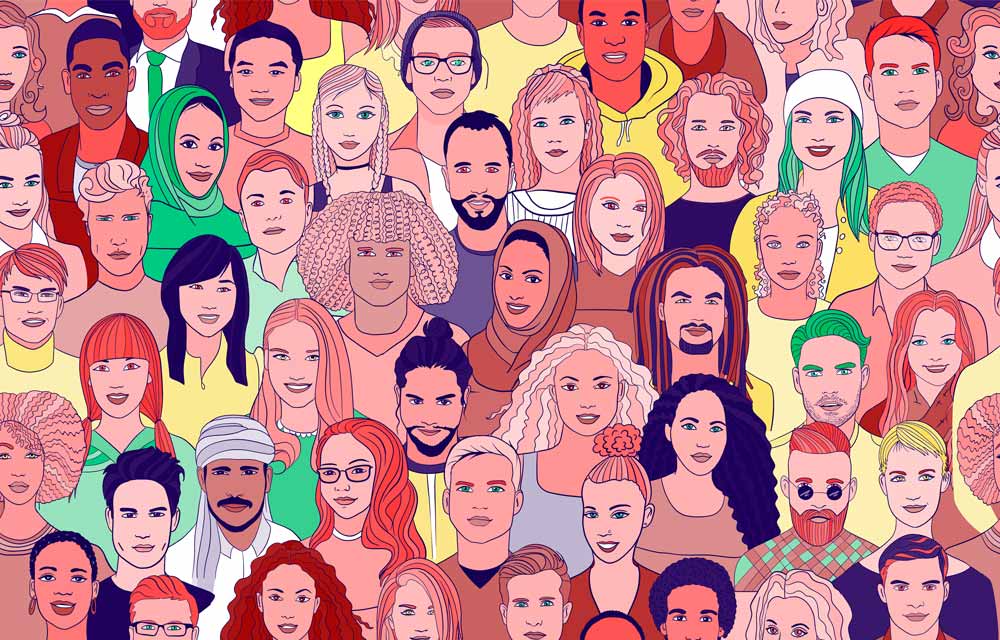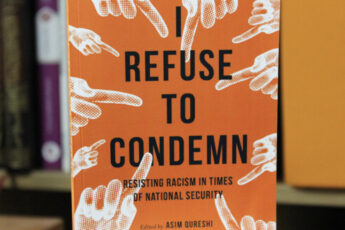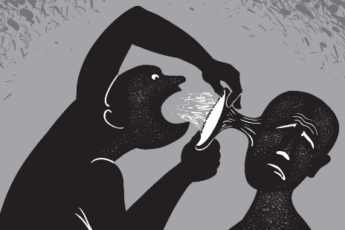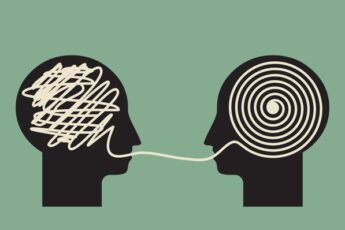
REPRESENTATION MATTERS! (EXCEPT WHEN IT DOESN’T)
“We’ve got lots of Muslim authors on our publishing roster, would you like to see?” I was handed it and saw listed a ‘daring escape’ from the barbaric Taliban to the shiny shores of ‘Murica. Another ‘explosive account’ of a Saudi princess falling in love with a US Marine. I saw a London-based ‘gritty and brave memoir’ of a Pakistani teen transitioning to a man, to the anguish of her conservative family. And the list went on.
During the meetings reviewing manuscript submissions, there was a Palestinian author writing about trying to visit his dying grandmother in the Gaza strip:
“Do you think we could neutralise the framing of Israel in this?” was the first question by the editorial team. “Something like two warring parties with equal share in the blame? We need to drop this aggressor/victim thing.”
Well, the author is writing of the trouble he’s having seeing his grandmother because of a blockade?
“Okay, how about we ditch the grandmother angle, and it’s a love story between an Israeli and Palestinian?”
But that’s not the premise of the manuscript?
“Okay, how about we just remove the names Israel and Palestine altogether and use two fictional names?”
So… it’s nothing to do with that region?
“How about it’s a story of forbidden love across two warring fictional kingdoms?”
You mean, nothing that resembles the author’s manuscript in your hand?
When the content doesn’t fit the narrative, it is moulded, massaged, and refashioned until it will. Or, as is more common, it is dropped altogether.
So, we want ‘representation’?
The scenario I have described is not unique to publishing. Whether it’s politics, law, media, beauty, advertising, security, or pharmaceuticals, every industry rests on its own foundational principles. These are sometimes ideological, other times financial, but often a mix of the two. The main priority is to uphold the constructed narrative that underpins all of the work done in that industry. The aspirations you bring as a Muslim into that sphere may (at best) not align neatly or (at worst) be totally contradictory with the values of that industry. If you are coming to your role with the whole of yourself, honouring the ethics and principles of your dīn, then there are some deep questions that you need to ask yourself.
Across so many industries, the issue of representation for Muslim minority groups poses difficult and often uncomfortable challenges.
Who are we representing?
Why are we representing?
What tangible benefit do we realistically see because of this representation?
Do we simply aspire ‘to be seen’? Do we want to impact change by making life fairer for those we claim to represent? If so, we need to think harder about where we position ourselves.
Equal access to oppressive and broken systems is not progress. In fact, adding black and brown faces in these spaces can serve to normalise and legitimise the ethos on which these industries run. How does it help the long hours, dangerous environments, and precarious work contracts of exploited workers if a CEO is now named Abdullah ibn Fulan over John Smith, for example? Is a beauty brand that preys on the insecurities of a teenage audience better because its founder is a female wearing a hijab? Does the ‘representation’ argument smack a ‘BAME’ band aid on a leaking institutional wound, instead of working to address the very roots of the injury altogether?
What is the purpose of representation?
Increasing awareness of racial issues and the scramble to be seen as inclusive and diverse has seen many industries actively filling quotas of workers from minority backgrounds. The pressure is on. However, despite heavy focus given to employing BAME workers, little to no thought is given to the institutional culture that has traditionally prevented the presence of such workers there in the first place.
For those gaining access to such institutions – often using their ‘Muslim and minority’ card to bolster their credentials – a core Islamic outlook is not a factor for the role they play. It seems the higher one goes up the rungs of power, the more nominal the ‘Muslim-ness’ of an individual’s identity is for the version of themselves they bring to work, even while ‘representing’. This is often because it is understood that your personal values are of little importance to how the industry is run. You sign up for the organisational ethos from the outset and that becomes your only criteria for how you are expected to work.
This is often why the community may feel disappointment or open confusion when, for example, it is the Muslim politicians themselves who are the first to vote in support for war and airstrikes on Muslim countries, gay marriage, etc. These are the examples of the kind of representation that gets you into the higher echelons of power. These individuals tick a BAME box and grab the representation ticket, but they don’t aim to serve the needs of the community they claim to be representing. In fact, how often do these minority faces seem to go further in proving their loyalty to these institutions compared to their White counterparts? In the realm of politics, they sign up to actively renege basic civil protections while principled non-Muslim campaigners stand by marginalised communities. When the few do pipe up to express their grievances, they are swiftly shut down and labelled as disloyal, seen as rocking the boat and silenced into irrelevance. Self-preservation requires the continued status quo to remain unchallenged.
If one is required to leave so much of their self at the door before stepping in to ‘represent’ their community, how impactful and authentic can such representation actually be?
The easiest form of representation – but which is still not happening ‘enough’ – is when black and brown faces are brought into an institution to bolster and legitimise it, never to challenge it. If you hold the same values and never deviate from the script, you are most welcome because your ‘Otherness’ is a safe diversity tick-box checked. You are not a threat, a challenge, or a call for change.
Where do we want to represent?
Not all spaces should be aspirational for Muslims either. If there are some industries that seem to lack Muslim representation altogether, maybe there is good reason for it. Perhaps the principles they are founded upon are so contrary to our goals as a community that they don’t warrant engagement. Do we want or need to be seen in every space, including in those where the services or goods provided are considered harmful or doubtful to our identity? Conversely, there is much positive work in areas that Muslims benefit from greatly, but we haven’t strengthened from our presence there. When there are essential services that are safe and we can ally with, only then can representation there create tangible real-world benefit.
There is no one-size-fits-all solution to the representation problem. Instead, we must take a critical and honest look at how multi-ethnic ‘representation’ truly benefits our communities. Are we trying to make the broken sectors a more palatable but unjust reality for our community? Or should we be looking to grow and support ethically sound institutions of our own?
Look at what is repeatedly done, not what institutions claim
Don’t only look at what institutions claim they do; look at the real-world impact they repeatedly create. For example, if an institution is claiming it protects the safety of society but it continues to criminalise, marginalise, and target minority groups, then this should give you an indication of what the true underlying ethos really is and whether you want to pull up a seat at that table. Often, the fluffy narrative given seems so appealing and reasonable, which is why we must pay attention to the track record of the output of the institution instead.
Support one another in growing our own industries
No one understands what our communities need better than the people inside them. We have the awareness, empathy, and vested interest to create services that will authentically serve the community. Many organisations were set up from the grassroots level in order to fill a vacuum, with no strings attached. We must shift our mindset into investing, supporting, and actively facilitating the success of essential work that benefits us all.
Why would I want to look at a multi-billion dollar corporation like Nike to purchase a sports hijab when I could be supporting a Muslim sister setting up her own ‘slow fashion’ brand independently? Why would Dior’s ‘Ramadan collections’ of high-end abayas attract the Muslim pound when we can choose to support the Muslim business owners who serve the community’s needs from the inside? If I can write a book that authentically and wholly represents my message, why wouldn’t I contribute to literature through Muslim publishing with no compromises required? These examples can be spread across so many different services. In terms of numbers, at least, Muslims are at enough of a critical mass to effectively bring these realities to fruition through mutual support. We are able to take the reins ourselves and do it better, do it authentically, and make the spaces that we know are desperately needed.
Represent when your engagement creates meaningful change
Understand the difference between those who can change the mechanisms of an unjust system, and those who only want to window-dress a broken system with some ‘minority’ endorsement. Many institutions deliberately mandate superficial, unreasonably incremental, or inconsequential changes because their aims are not to actually become better, but simply to ensure self-preservation at all costs.
When the ruling tribes of Mecca perceived the Prophet Muhammad (sall Allāhu ‘alayhi wa sallam) as a danger that might cause tensions similar to the rivalry of the Jews and Bedouin polytheists in Yathrib, they sought to find a way to placate his message. The powerful merchants in Mecca attempted to convince the Prophet to abandon his preaching by offering him admission into the inner circle of merchants and an advantageous marriage. However, the Prophet turned down both offers. He recognised a broken system, and rather than gleaning personal benefits or believing that it could be saved ‘from inside’, the Prophet rejected all the offers from the outset. Instead, he took what Allāh describes as ‘the steep path’ (al ‘aqabah, as mentioned in Sūrah Al-Balad) by working to create a sound and righteous system of living instead.
Do it better – don’t ‘halalify’ what’s broken
If you are a Muslim who wants to enter a public-facing role, don’t simply replicate existing profits-driven corporate models with a ‘halal spin’. Rather, imbibe the very Islamic ethos into the core of the work you do. Islam is not a rubber stamp that erases dubious business or work practice simply because the one in charge is a Muslim. Building up our own sustainable and ethical institutions requires this scrupulous and self-reflective outlook in order for the institutions to enjoy longevity.
Representation matters…maybe
Representation matters, but not in the way it is hash-tagged so often.
The question remains of what positive representation looks like in the mainstream. The answer to this is not straightforward. Those who represent brave and challenging ideas should take a platform, with the focus being less on the personage and more on the ideas being brought forward. The goal is one of principled and rigorous ideas accounting and expanding the prevailing narrative at play. Worthy representation isn’t skin-deep, it calls on courage, authenticity and principles which point people away from the stagnant narratives that feed power towards a wider horizon.
We must take a sensitive, informed, and considered approach when we join the ranks of institutions that we believe we are in to represent. Not all representation is possible, equal, authentic, or even desirable. However, representation can be powerful and game-changing when it is done with sincerity and authenticity. This is the tension we must all traverse and ask difficult questions about. There is no blanket value in the selection of minority candidates when they serve only to prop up problematic and dysfunctional realities. We are more than fodder for diversity quotas within normative structures and tick-box adequacy. Real and lasting impact requires brave and authentic action. This is al ‘aqabah, the ‘steep path’. For us as individuals and communities, there is no other road worth taking.



